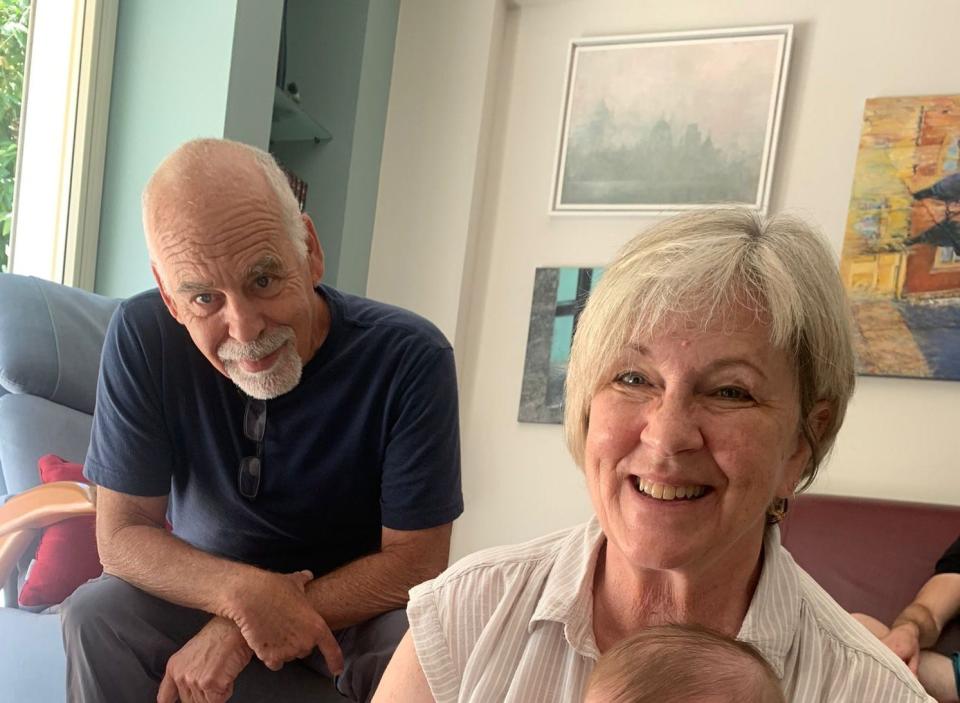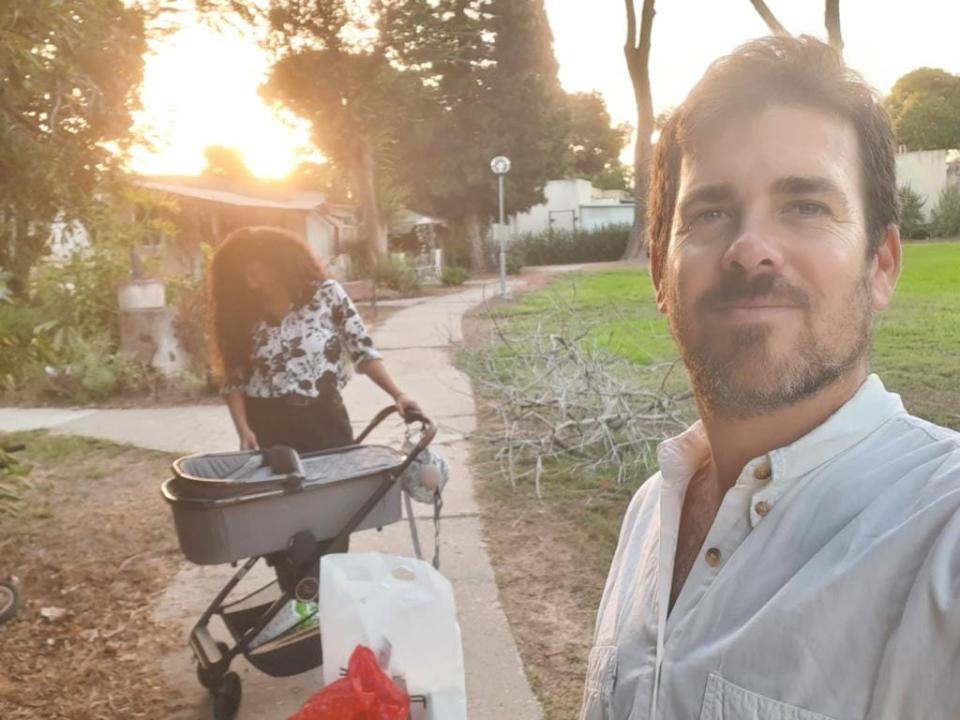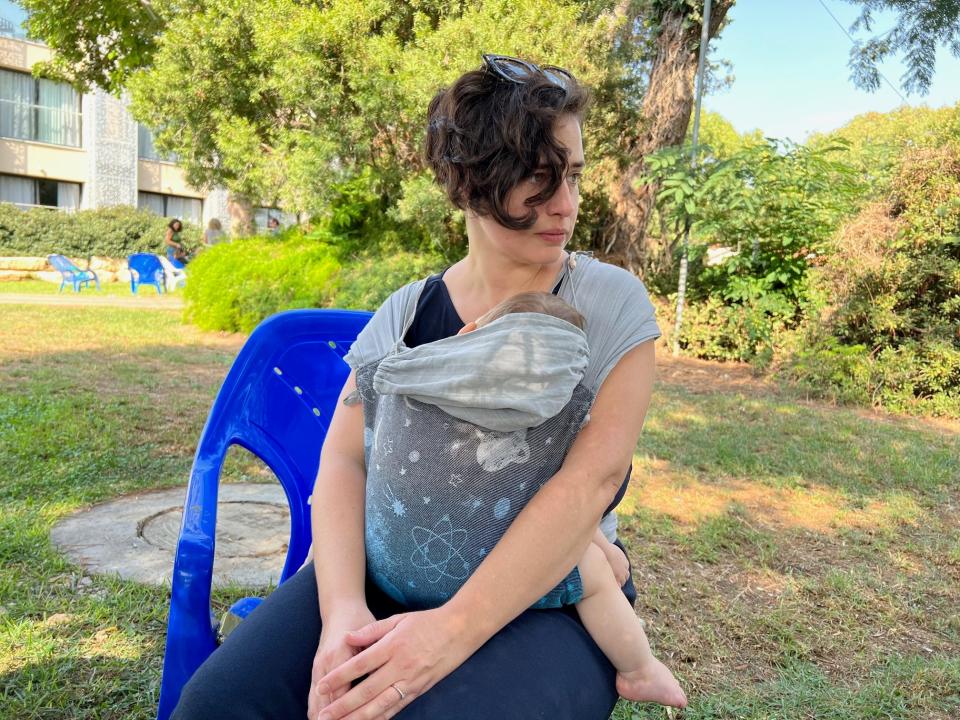An American mom, 67, spent her life advocating for Palestinian rights. Then Hamas came.
Editors' note: On Thursday (10/12) USA TODAY learned from her family that Cindy Flash was found dead at the kibbutz that was attacked.
SHEFAYIM KIBBUTZ, Israel − They exchanged text messages and emojis. Brief status updates with words of encouragement. A picture of the beloved family dog, Tutsi.
Until no more messages came.
And then, Cindy Flash, an American, and her Israeli husband, Igal, vanished into the violence, presumed kidnapped by Hamas.
Four days after Hamas attacked Israel, more than 100 Israelis and possibly dozens of foreign nationals are thought to be held captive in the Gaza Strip. At least 14 U.S. citizens have been killed and an unknown number are still unaccounted for.
Flash, 67, originally from St. Paul, Minnesota, was one of them. She lived in Kfar Aza, a kibbutz in southern Israel near Gaza, where some of the most harrowing and grisly stories have been emerging over the past few days.
"They are breaking down the safe room door," Flash said in one of her final messages to her daughter Keren, 34. "We need someone to come by the house right now." Keren had been communicating with her parents from a few houses away.

Keren described her mother, an administrator in a local college, as someone who had the "sweetest biggest heart," whom everyone knew and loved, and who had spent a lifetime advocating for the rights of Palestinians, including those who live in Gaza, where she may now be held.
She emigrated to Israel decades ago after a visit during college, when she fell in love with Israel's system of kibbutzim − collectives traditionally centered on agriculture but which have evolved to accommodate myriad interests, tastes and even businesses.
"They didn't deserve this,'' her daughter said Tuesday on the grounds of a sprawling hotel and resort on a coastal kibbutz northeast of Tel Aviv, where hundreds of people were evacuated after the attack. "No one deserves this."
It was filled with volunteers bringing sandwiches and sweetcakes. Sobbing teenagers, reunited after days of having their worst fears confirmed, hugged one another tightly. Small groups of people sat at tables hunched over laptops compiling lists of the missing. A manager said about 300 people from Kfar Aza were staying at the hotel.
Before the attack, Kfar Aza had a population of about 800. Nobody knows for sure how many survived.
An Israeli home next to the Gaza security fence
Cindy and Igal's home in Kfar Aza sits right next to the security fence Hamas militants broke through Saturday morning as they attacked Israel by land, sea and air.
The couple had recently renovated it, which had required that they move away from the kibbutz for a few months.
"They were so happy to be back," Keren said.
And their daughter said that despite their proximity to Gaza, everyone in the family had always felt secure and reveled in their area's lush vegetation, tranquility and sense of community.
In fact, the extended Flash family had expected a very different Saturday from the one they got.
They had planned a family picnic. And later that afternoon they were going to make and fly kites in the local soccer field as part of an annual community event. Maybe, they thought, they'd have a little ice cream and relax after a hectic week of family life and work. A DJ was going to play.
Instead, Keren, a Pilates instructor, and her husband, Avidor Schwartzman, 37, a media consultant, woke abruptly around 6:30 a.m. to a blaring alarm system and heard what appeared to be the sound of bombs going off. They leaped out of bed and dashed down the hall to grab their 1-year-old baby, Saar, and her bottle, diapers, water and a little food. Then they locked themselves in a room of concrete and reinforced steel.
Around the same time, Cindy and Igal, 66, locked themselves in their own safe room. The sounds of bombs gradually turned into the sounds of automatic gunfire as Hamas militants encircled Kfar Aza and began going house to house to hunt people down.
"We started losing contact with so many people on various WhatsApp groups," said Keren, who along with Avidor and Saar was eventually rescued by Israeli security services. ''We would hear that they were wounded, and then they would just drop off completely."
Israel media reported Tuesday that the bodies of 40 children and babies were found in Kfar Aza, some of whom had been beheaded. An Israel Defense Forces spokesperson said Kfar Aza was a "massacre." The bodies of civilians and militants were found scattered throughout the kibbutz. He declined to comment on the beheadings. One report, which USA TODAY could not independently verify, said that multiple people had been beheaded and that charred bodies had been found. The Israeli death toll from the Hamas attack has passed 1,200.
Not giving up hope that her family will be found
Neither the U.S. nor Israeli authorities had been able to provide them with any information about where her parents might be, Keren said.
But she had not lost hope they would be found.
"Anytime someone calls us, any authority from the kibbutz or anywhere, our hearts sink down, and then they say, 'We don't have any new information.'"
Shaylee Atary, 34, another Kfar Aza resident, spent several days coming to terms with this feeling as well.
She last saw her husband, Yahav Winner, 37, on Saturday as he barricaded a window of their home to allow time for Shaylee and their 1-month old daughter, Shaya, to flee.

'A signal that I should run'
"He kept saying to me, 'This is not the day we are going to die,'" Atary said.
"We could hear the attackers walking on the grass outside the window. There was a crunching sound because the leaves have started to fall down because of the season. We couldn't talk because we didn't want them to hear our voices, so we were signaling silently to each other. And then, as they were breaking through the window, Yahav looked at me for a quarter-second. He didn't say goodbye, but I understood that it was like a kind of signal that I should run."
She fled first to some nearby bushes, and then to an empty garden shed.
And running, for Atary, is hard because of a car accident that has made it difficult for her to walk. She also was carrying Shaya.
As she hid in the shed, Atary found a hammer and screwdriver, which she put in her pockets. She put some old pots on her and Shaya's head, who was − miraculously − asleep.
But then the baby woke up and began to cry, which attracted the attention of the attackers. She could hear them walking toward her. She feared they would shoot into the shed indiscriminately.
"I knew I had to run again," she said. "But this time, it was a decision, not so much an instinct. So again I fled, and when I reached a large grassy area that is in the middle of our kibbutz, I thought 'Well, maybe this is how I die, despite what Yahav said.'"
'Don't be a hero'
Moments later, a family with children sheltering in their home saw her and ushered her inside, risking their lives. She stayed in this safe room for the next 27 hours, without food or water, and as the oxygen in the sealed safe room dwindled, before they were rescued by Israel's military.

"Yahav is a very protective," she said of her husband. "He's also smart. I believe he probably surrendered to allow us to escape."
Late Tuesday the news finally came. Yahav's body had been found.
"In my head now, I tell myself that when he looked at me what he was saying was: 'Shaylee, you are with the child. I'm holding the door. Go'," she said.
"Then I think, why didn't I say: 'Don't be a hero. Come with me.'"
Keep up with developments from Gaza: Sign up for our Israel-Hamas War newsletter.
Is Iran behind Hamas terrorist attacks? What it would mean for US and Middle East security
This article originally appeared on USA TODAY: An American mom, from a kibbutz, was one of many who was attacked

